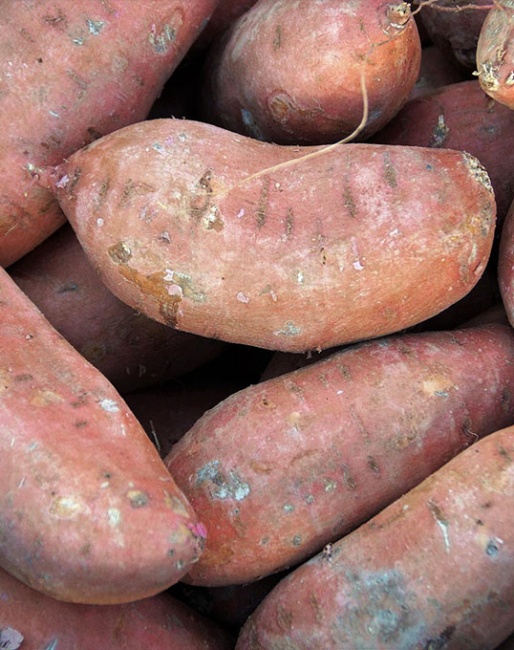
Can you feed sweet potato as a treat for your horse instead of carrots? Kentucky Equine Research answers this question:
Both sweet potatoes and carrots can be offered to your horses as treats. Carrots contain about 88% water, while sweet potatoes have about 77%, making sweet potatoes slightly more nutrient-dense. Both are relatively poor sources of protein because of the high water content (carrot, 0.9%; sweet potato, 1.6%; as fed).
The primary nutrient difference lies in the carbohydrate content of the two root vegetables. Although the fiber content (carrot, 2.8%; sweet potato, 3.0%; as fed) and the simple sugar content (carrot, 4.7%; sweet potato, 4.2%; as fed) are similar, sweet potatoes are much higher than carrots in starch (12.9% and 2.1%; as fed, respectively). Looking more closely at the type of starch in the sweet potatoes, 80% is rapidly digestible (enzymatic digestion), while only 11% is resistant starch (only fermentable by microbes). Sweet potatoes provide over twice the calories that carrots do (86 and 41 calories, respectively, per 100 g), mostly because of the difference in starch content. In this context, “as fed” refers to raw vegetables and “dry matter” to dehydrated vegetables.
While dehydrated sweet potatoes have less sugar than dehydrated carrots (18% and 40%, respectively), they have similar levels when fed raw (4.2% and 4.7%, respectively), as noted previously.
Both are rich sources of beta-carotene, which is the precursor to vitamin A.
Despite their names, sweet potatoes and Irish potatoes are not closely related from a botanical standpoint. Sweet potatoes and yams are vines in the morning glory family, whereas Irish potatoes are in the nightshade family. Sweet potatoes do not contain the nutritional anti-factors that make raw Irish potatoes unsafe for horses to consume.
Sweet potatoes can be a tasty treat for horses either raw or cooked. Due to their relatively high starch and sugar content, they should be fed in only small amounts. Feeding large amounts carries some risk, especially when given to starch-sensitive horses. In addition to beta-carotene, sweet potatoes are a good source of vitamin C and potassium.